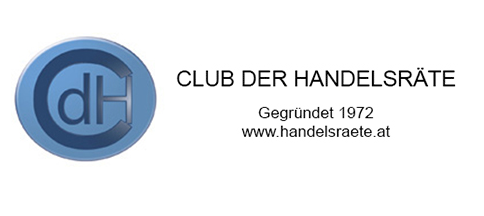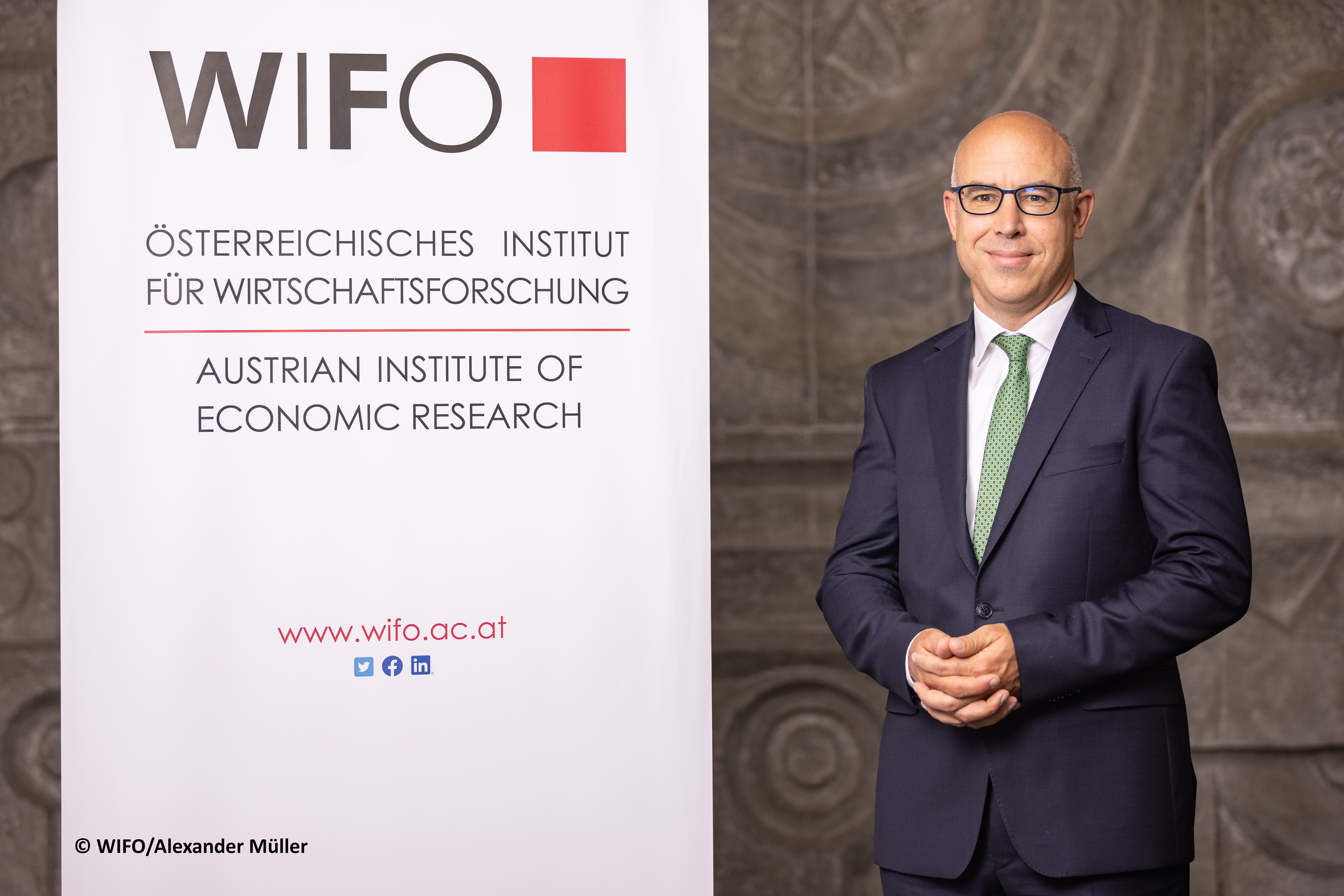Visit to WIFO, Austrian Institute of Economic Research
WIFO, Austria's leading institute for applied empirical economic research, invited us to an on-site visit on 18 June 2025. We were welcomed by the Director of WIFO, Univ.-Prof. MMag. Gabriel Felbermayr PhD., who offered us a presentation on "Free Trade is Over - How the New National Protectionism endangers our Welfare".
The central
statement of Prof. Felbermayr in his presentation was that nobody is winning a
trade war. The smaller an isolated country the more it is affected by a trade
war with long-run losses in real GDP. Therefore being member of a large
economic union is essential. Felbermayr presented EU-US tariffs in a KITE
model (a tool for simulating and estimating various types of (trade) policy
changes). He pointed out what optimal tariffs may be for the US and Europe then
explaining nash-equilibrium (both sides set tariffs such that no party can
improve its position unilaterally) and equilibrium tariffs with some additional
tariffs on a moderate level. He compared absolute vs. relative gains from trade
using a scientific equation. Trade war basics were next, such as only hegemons
can benefit from a trade war and there were none in the current world. Trade
wars are meant to improve the bargaining positions of rational players,
otherwise they remain off equilibrium. Consequently Felbermayr pointed out that
size matters - therefore coalitions, credibility was everything, retortion
requiring trade intelligence and non-orthodox measures wich could be smart
(export taxes, remove VAT rebates, digital services).
According
to Felbermayr, showing a world trade statistic until January 2025, world trade
was relatively stable with a continuous upturn after the sharp decline during
covid 19 period. Even the war in Ukraine had no considerable impact on world
trade performance. The next slides were about the applied MFN
(Most-Favoured-Nation) Tariffs of the G20-Countries. Felbermayr pointed out to
new trade policy measures such as discriminating legal acts rising sharply
since 2020: Import- and export-taxes, subsidies, quantitative restrictions, TBT
(Technical Barriers to Trade), SPS ( Sanitary and Phytosanitary measures),
trade finance and other bureaucratic requirements. Since 2021 both the US and
EU raised trade barriers considerably among each other shown by the number of
respective law acts per year.
The next
subject of Felbermayr was the enormous current account inbalance of the US in
relation to its GDP since 1982 already and specifically since 1991 until today
rising to 200 gross in % of GDP in foreign debt and a stagnating 130% of
foreign assets in comparison. Then Felbermayr went on to what he calls the
Trump-Shock on Liberation Day, April 2, 2025, threatening with enormous
increases of trade tariffs (the rather infamous Reciprocal Tariffs list
presented in front of the White House). Felbermayr explained the mathmatical
model of the Trump-Tariff and the "correct" versus the
"wrong" Trump-Tariff country by country with it's different effects,
furthermore the Trump-Formula applied to services trade.
The trade policy uncertainty was rising to a record high. As a consequence a UD$ depreciation versus the EUR could be observed. Financial markets call the development TACO-Trade (Trump Always Chickens Out), speculating that Trump would withdraw his tariff threats. A statistic shows the US Stock Market Index being in the mood of Trump-Panic and TACO-Trade as well. According to Felbermayr the current US-Made Trade Policy causes uncertainty and pain. However the effects of the US isolation would have altogether low negative effects on regional GDPs, exports and imports in Europe with some exeptions such as Ireland. The development shows clearly that the European Single Market provides protection for Europeans. A US-UK deal would not be a good blueprint for the EU. Sectoral effects in the EU could be however considerable such as pharma, cars, machinery, metals, chemicals, electric products, notably in Germany and therefore in Austria as well.
The presentation of Univ.-Prof. Dr. Felbermayr was followed by a lively discussion.
WIFO:
Founded in 1927 by
Friedrich August von Hayek and Ludwig von Mises for the purpose of economic
analysis, WIFO is today the leading institute for applied empirical economic
research in Austria with a strong commitment at the European level.
Range of services
- Analysis and forecasting of economic,
social and environmental developments,
- scientific research and analysis on socially
relevant topics,
- quality-assured economic data,
- simulation and evaluation of the impact of
economic policies,
- evidence-based economic policy advice at
national and international level,
- evidence-based information for economic
policy, public and international organisations,
- designing and conducting surveys.
WIFO's research is based on
a broad foundation of economic theory and state-of-the-art empirical methods.
Five research groups as supporting pillars of the WIFO organisation ensure the
necessary breadth of bridging. WIFO has, in addition to an efficient IT and
data infrastructure, detailed models for the analysis of micro, macro, regional
and environmental economic issues as well as profound econometric
know-how.
Univ.-Prof.
MMag. Gabriel Felbermayr
Gabriel Felbermayr has been Director of the Austrian Institute of Economic Research (WIFO) in Vienna and university professor at the Vienna University of Economics and Business (WU) since 1 October 2021. After studying Economics and Trade at the University of Linz, he went to Florence, Italy, to pursue his doctoral studies. From 2004 to 2005, he was an Associate Consultant with McKinsey & Co. in Vienna. From 2005 to 2008, he was Assistant Professor at the University of Tübingen. From 2009 to 2010, he held a chair in International Economics at the University of Hohenheim (Stuttgart). From 2010 to 2019, he led the ifo Center for International Economics at the University of Munich, where he also served as a full professor in International Economics. From 2019 till September 2021 he was President of the Kiel Institute for the World Economy and held a chair in Economics and Economic Policy at Kiel University (CAU). Gabriel Felbermayr holds various roles and positions. The most important are: Member of the Scientific Advisory Board of the German Federal Ministry of Economic Affairs and Climate Action, Chairman of the Statistics Council of the Statistics Austria Federal Institute, Founding President of the "Austria Supply Chain Intelligence Institute" (ASCII). His research and consulting work focuses on issues of international trade theory and policy, labour market research, European economic integration, and current economic policy issues. He has published a large number of articles in international academic journals, policy briefs, and newspapers. His research has been recognised with several awards.


